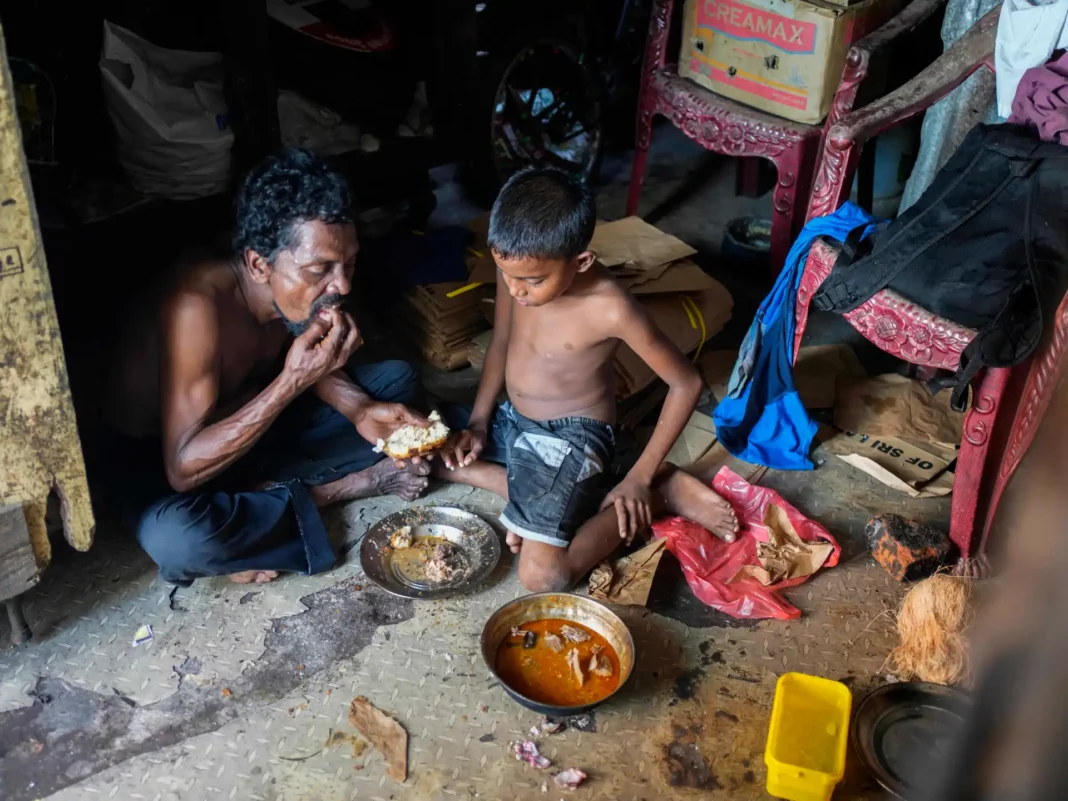A UN photo.
Environment Ministry Secretary Anil Jasinghe told the Sunday Times food and water security were among the government’s biggest concerns as the immediate risks posed by climate change.
Other experts told the Sunday Times that extreme weather events such as droughts and floods which destroy crops, the dry zones of Sri Lanka becoming drier, and the wet zones wetter, along with the narrowing of the temperature difference between night and day in certain agricultural areas were the primary reasons behind this concern as crops get damaged in large volumes and should conditions worsen they would stop growing altogether.
In the meantime without assistance, the food security situation was expected to deteriorate, particularly during the October 2022 to February 2023 lean season, driven by poor harvests of staple foods, in particular paddy, and the ongoing economic crisis.
“To avert a deterioration of food security conditions and to support the restoration of agricultural production and livelihood assistance targeting small scale farmers should remain a priorities. With around 30 percent of the people depending on agriculture, improving the production capacity of farmers will ultimately boost the resilience of the agricultural sector, reduce import requirements amid shortages of foreign currency reserves and avert the rise in hunger,”said Food and Agriculture Organisation’s Sri Lanka Representative Vimlendra Sharan.
“Months into this crippling economic crisis, families are running out of options. They are exhausted. More than 60 percent of families are eating less, and eating cheaper, less nutritious food. This comes at a time when financial constraints have forced the Government to scale back on nutrition programmes, such as school meals and fortified food to mothers and undernourished children. The World Food Programme’s top priority is to provide immediate food and nutrition assistance to the most at-risk communities to prevent deterioration of their nutrition levels,” said WFP’s Sri Lanka Representative and Country Director Abdur Rahim Siddiqui.
At the request of the Government, the joint Crop and Food Security Assessment Mission visited all 25 districts in the country between June and July this year to analyse agricultural production levels this year, particularly of main staple cereals, and to assess household food security conditions.
The key recommendations by the joint FAO/WFP Mission were the immediate provision of food or cash-based assistance to vulnerable and marginalised communities, including pregnant and breastfeeding women, women-headed households and persons with disabilities, to help them meet their immediate food and nutrition needs. The report also recommends the immediate provision of agricultural inputs, including fertilisers, focusing on small scale farmers. The report outlined the need to support households establish home gardens and backyard gardening to enhance their nutritional status, while providing adequate amounts of fuel to ensure effective planting, harvesting, transportation and processing of food crops.
The report suggested providing high-nutrient animal feed, vaccines and veterinary health kits at subsidised prices to livestock owners, especially dairy and poultry farmers to mitigate the impacts of feed shortages. Support for the resumption and continuation of national nutrition programmes such as school meals, which faced disruptions due to funding constraints, were also highlighted as a priority.
In communications with the Sunday Times, WFP representatives noted that their latest surveys show the ongoing impacts of the food crisis, where a reported seven out of ten households were adjusting their food consumption, including skipping meals, to cope with high food prices and reduced income.
